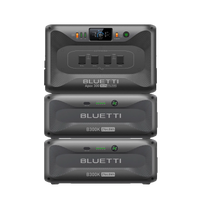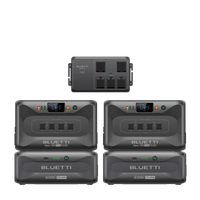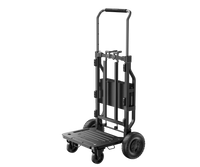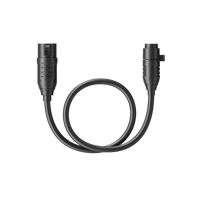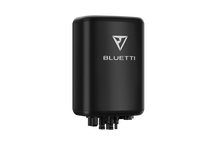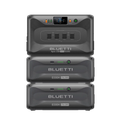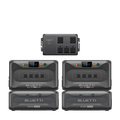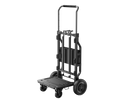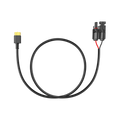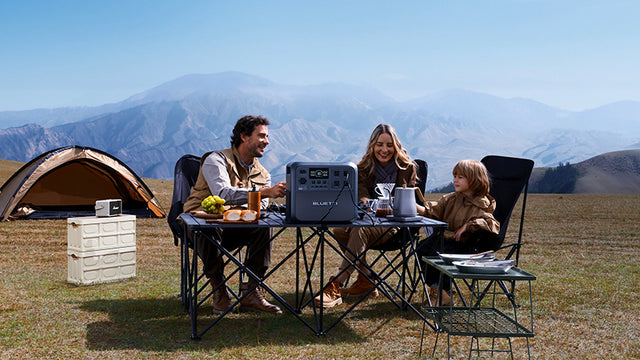Your cart is empty
Shop our productsIt’s not uncommon to experience power outages spanning days or weeks. If this happens, you’ll need a backup power option that can at least power your devices for this long. This is where home batteries and generators come into play. Both are excellent backup power options but serve different needs. So, should you buy home batteries or a generator? Let’s find out in this article.
What are Home Batteries?
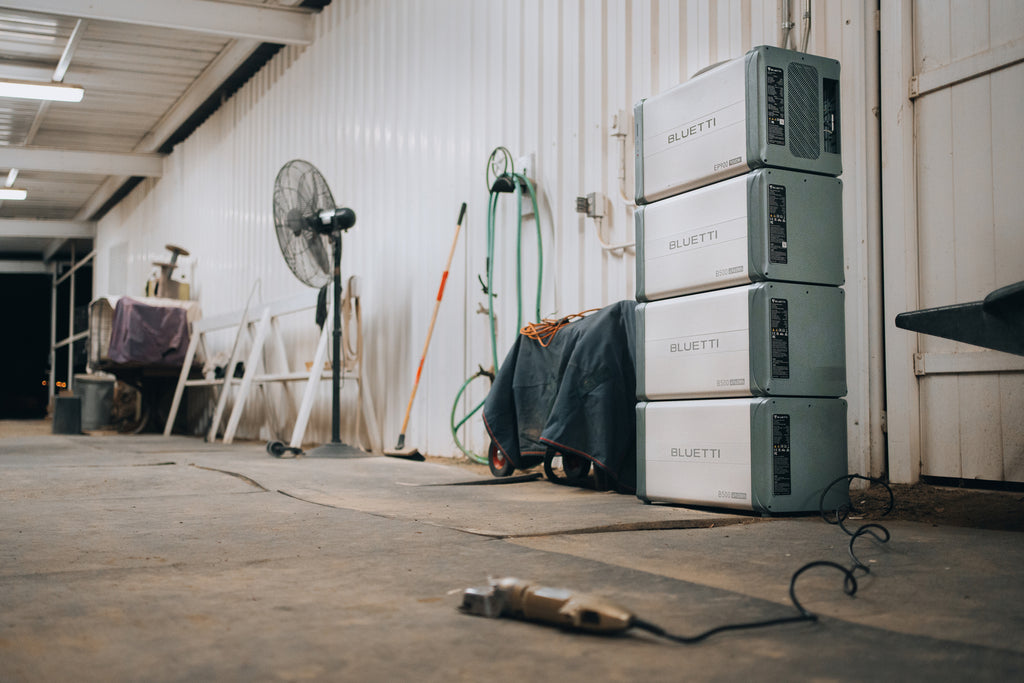
A home battery, like any other battery stores electric energy for future use. They come in different sizes and capacities, with large units fetching a higher price. Home battery backup systems are mostly used to provide power during power outages. They are a favorite for most homeowners since you can connect them to solar panels and the electric grid. As such, they are more environmentally friendly than generators.
And if you don’t have a solar system, you can use a home battery to save on electricity bills. For example, you can use the battery to power small and medium appliances during the night. This can lower your electricity bill significantly. And to cut further on electric bills, you can recharge the battery during off-peak hours when the rates are lower.
Home battery backup systems are more beneficial when installed with solar panels. You can always store the excess power for future use. Furthermore, you can opt for a grid-tied system, allowing you to sell excess electricity to your utility company, earning extra money.
What are Generators?

Generators are more popular than home batteries as they have been in use for decades. They are not only used in residential settings but also commercial applications. This is thanks to their reliability and high power output. They are connected directly to your home’s electrical panel and kick on automatically in case of a power outage.
As you’d expect, generators run on fuel such as gasoline, diesel, or propane. Premium options are equipped with a dual fuel feature. This means you can use propane and gasoline simultaneously. They are an ideal option especially if you are living off the grid.
There are also bi-fuel options that can run on two different fossil fuels. However, you can’t use the fuel options simultaneously. Most natural gas and propane generators can be connected to your home’s gas line. Unfortunately, diesel units require manual refilling.
Differences Between Home Batteries and Generators
So, how do these backup power options compare? Let’s find out.
Price
Home backup batteries have a higher initial cost than generators. In addition, you’ll need to buy batteries which are also expensive. Installation is also expensive as it requires professional input. The battery price will depend on the brand, size, and how many you’ll need to meet your energy needs.
Ideally, a typical home backup battery system costs upwards of $10,000 without considering the installation cost. If you want to install solar panels, you can bet the price will be higher.
Generators on the other hand are cheaper to purchase, but will need constant refueling. It means you’ll spend more in the long run than home batteries. The average price of a home generator starts at $7,000 with dual fuel units being the most expensive. Like home batteries, the actual cost will depend on the size, capacity, and brand.
Powering your Home
There’s no doubt generators can power your home for an extended period more than home batteries. As long as there's enough fuel, you can use a generator for weeks or even months. Generators can also power large appliances like heating systems and refrigerators. And you don’t have to worry about critical loads since most installers will ensure you get one that exceeds your power needs.
This is not the case with home batteries. They have inadequate power output, meaning not all can power large appliances for extended periods. That said, most batteries can keep your lights on and power small appliances such as TVs and laptops.
If you have large appliances and still want to install a home battery backup system, you’ll need larger batteries, which as mentioned is expensive. Furthermore, you need to be aware of the electricity load since you can overload them easily.
Installation
Installing home batteries is fairly easy. Most can be mounted on the wall or placed on the floor. Others are portable and don’t require any mounting. Just connect them to your electrical circuit and you are good to go. For example, BLUETTI home batteries do not require mounting. You just need to place them at a strategic position. Others are portable meaning you can even use them for outdoor activities like camping.
Generators on the other hand require professional installation. Besides, you might have to get an installation permit from your local authority. You also need to install them quite a distance from your house. They also require to be installed in a shaded area away from environmental elements, which is an added cost. You’ll also have to connect the generator to a dedicated fuel source and install a transfer switch.
Use and Maintenance
Well, home batteries are easy to use since they come with an intuitive user interface. Besides, they are quieter than generators. It is hard to ignore generators when they are running. Not only are they noisy but also produce fumes. Batteries do not pollute the atmosphere, meaning they reduce your carbon footprint.
Battery backups are maintenance free. You don’t need to lubricate or replace moving parts. On the contrary, generators require constant maintenance like lubrication and replacing parts. If you don’t want to worry about your backup power system failing, consider buying a home battery.
Lifespan
Most home battery backup systems have a lifespan between 10 and 12 years. Fortunately, they are companies that offer a 10-year warranty such as BLUETTI. The batteries have a 10-year warranty so you can use them with peace of mind. Home batteries like phone and laptop batteries lose the ability to hold charge.
Generators have a longer lifespan spanning decades. Premium generators can run for 3,000 hours. Furthermore, you can upgrade a generator, increasing its lifespan.
Popular BLUETTI Home Batteries
BLUETTI is a leading manufacturer of home batteries, here are three options ideal for home use.
BLUETTI AC500 + B300S | Home Battery Backup

The BLUETTI AC500 + B300S is a workhorse with a 5000W pure sine wave inverter. This allows you to power most appliances in your home. It is also a high-capacity battery, boasting of a 3,072Wh capacity. Thanks to its modular design, you can expand its capacity to 18,432Wh. This allows you to power many devices simultaneously.
Like other premium BLUETTI home batteries, you can recharge it using solar, a generator, a car cigarette lighting, and lead acid battery. And thanks to its compact and lightweight design, you can place it on an elevated ground or on the floor. Whether you want to use it for outdoor or indoor activities, this model got you sorted.
BLUETTI AC300 + 2*B300 | Home Battery Backup

This is yet another option ideal for your home use. A modular battery with a capacity of 3,072Wh that can be expanded to 12,288Wh. This is ideal power to run your devices for days during a prolonged power outage. It also comes with an adjustable pure sine wave inverter, allowing you to adjust the charging rate between 1800W and 3000W. As such, you can use it with most common devices.
What makes it stand out is the dual charging feature. You can connect it to solar panels and a wall outlet. This saves you time so you can keep your devices on at night. Like other BLUETTI batteries, it is compact and lightweight, fitting in tight spaces.

Finally, you can get this movable home battery backup that can power most household appliances. It has a pure sine wave inverter rated at 3000W. This means you can connect critical load devices and they will run smoothly.
Thanks to its high 5,120Wh capacity, you can use it for off the grid living. But that’s not all, you can connect multiple devices simultaneously. This model comes with an app remote control feature so you can adjust settings from the comfort of your coach. Monitoring it is also easy thanks to the smart touchscreen.
How Long Can a Home Battery Run?
It will depend on which appliances you’ll be running during an outage. If you’ll be using larger appliances such as a refrigerator or heating system, you can expect it to backup for fewer hours than when running smaller devices.
Final Thoughts
So, should you buy a generator or a home battery backup system? If you want high power output, a generator is your best bet. However, keep in mind that generators are noisy and pollute the environment. Home batteries are ideal if your energy needs are low. They can also be ideal for homes with pre-installed solar panels.
Shop products from this article
Be the First to Know
You May Also Like

What Does a 30% Federal Solar Tax Credit Mean and How to Apply?
Governments around the world are offering programs that encourage homeowners to switch to solar energy. Among the most notable programs is the 30% Federal Solar Tax Credit. It reduces your...

Deadly Flooding Devastates U.S. South and Midwest — What You Need to Know















